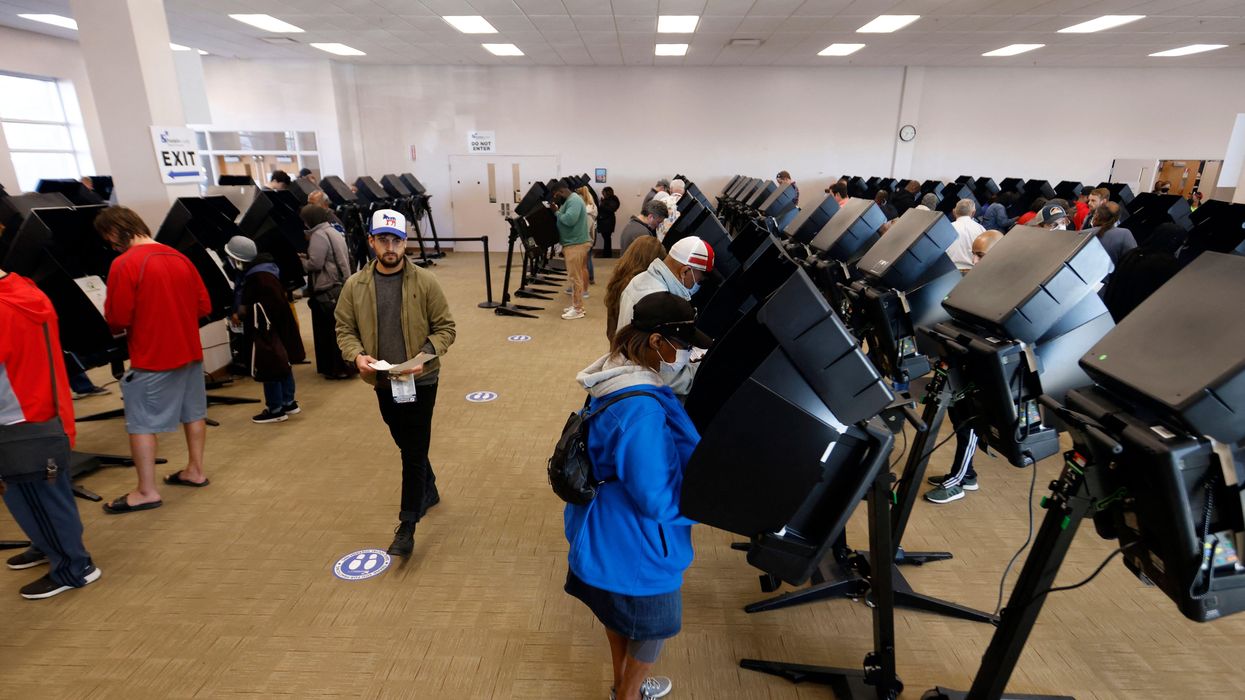Leighninger is head of democracy innovation for the National Conference on Citizenship. Gifford is the founder and chief operating officer of ActiVote.
Many Americans aren’t confident about the choices they are making at the polls; as a result, some voters are making ill-informed decisions and others aren’t voting at all. In fact, roughly 50 percent of all the people who register never actually vote, and closer to 75 percent of those registered don’t vote in primaries and local elections. We would have higher turnout, and election results that better reflect what Americans want, if we put voters at the center of the process instead of treating them as the means to an end.
This was the overarching finding of the research on voter education we conducted this spring and summer. Our organizations, ActiVote and the National Conference on Citizenship’s Democracy Innovation Project, held focus groups and surveyed existing studies to find out if more customized, accessible, nonpartisan information would help voters. We asked focus group participants to use the ActiVote voter education tool, which allows people to compare how their policy views map with those of the candidates vying for their votes. The focus groups covered three different cohorts of voters: new voters, infrequent voters and “super voters.”
We had three more specific findings. First, voters don’t like to feel uninformed. “There are a lot of people that I vote for that I don't know who they are,” said one focus group participant. “I feel stupid every time I'm doing this.”
Theoretically, voters should be able to base their vote on what the candidates say they are going to do once in office, but voters have difficulty connecting their own policy views with candidate platforms. Another focus group participant said: “I realized how much I don’t know, especially about the bills and the policy kinds of questions. There's a lot of stuff going on, it's hard to keep track of.”
This is particularly true for local and state races. One focus group participant from Pennsylvania admitted, “The reason why I never vote locally is because I simply didn’t have the knowledge to do so.” Another Georgia participant stated: “ It takes so long to find the information that you do not have time to actually process the information.”
Many other studies have supported this finding. One example is the 100 Million Project about non-voting adults in America, which showed that voters do not have time to learn as much as they’d like about the candidates and the process. The more confidence voters have in the process and in the quality of their vote, the more likely they are to show up to the polls.
Second, voters are uncomfortable with the influence of partisanship on the information they receive. As one focus group participant put it, “The polarization that exists right now, it just feels very manipulating. Truth doesn’t seem to be the goal, right?” Many focus group participants talked about voting along party lines, or following the endorsements of organizations they support, as a fallback they were using to replace trusted, easily accessible information on candidates and issues.
When they saw a way to work through information together, the focus group participants recognized an opportunity to get past polarization. One participant felt, “The more people can delve into the issues and see where they really stand and see where candidates stand, the better. Hopefully that's helping people to understand it's not all about polarization. We can agree on some things.” Being able to see how their views compared with those of the candidates helped them focus more on values and policies and less on party.
Third, as people were better able to explore the information about issues and policies, they became more interested in voting on issues directly through opportunities like initiatives and referendums. Instead of “shoving Republicans or Democrats down our throats,” said one young voter, we should take an issue like infrastructure and say to people, “Look, our infrastructure needs help. Now you form your own opinion. How should the need be solved?”
This finding is supported by other research. Americans support practices and reforms that would give them a more meaningful say in public decisions. In one national opinion poll, Americans were asked about a list of possibilities for participatory democracy. Support for these ideas — including processes like participatory budgeting and citizen assemblies, which allow everyday people to contribute to policymaking — ranged from 75 percent to almost 90 percent, without significant differences between Republicans and Democrats.
Voting should not make people feel stupid — it should make Americans feel informed, connected and empowered. By providing more information, better ways to process that information and more opportunities to be heard on policy issues, we improve the way we elect candidates and make public decisions. If we want government “of the people, by the people, for the people,” we should spend more time and effort focusing on the people.



















Trump & Hegseth gave Mark Kelly a huge 2028 gift